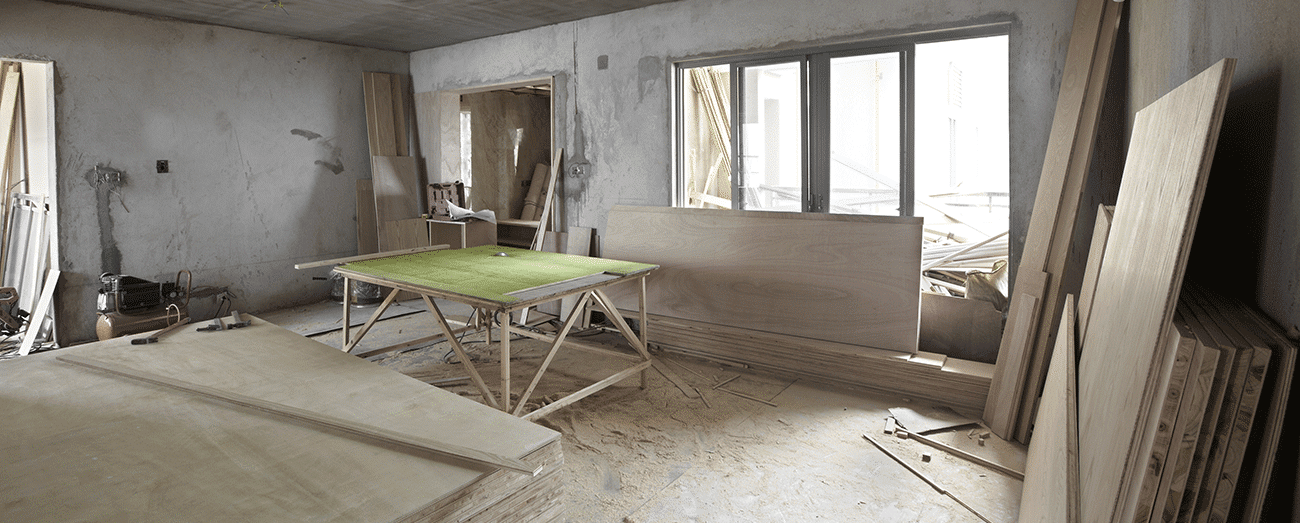After consulting numerous interior design magazines and watching a host of TV shows on the same subject, you’ve finally made up your mind: you’re going to renovate your property! All your plans are ready: you’ve chosen the paint, the materials, etc. You’re even mentally prepared: you’re not afraid of the financial and time investments, or even the emotional involvement! But one important detail may have slipped under your radar… your insurance! In this article, Assurances Multi-Risques will share some useful tips on the subject to help you avoid any insurance problems following the renovation of your home. We will focus here on occupied homes, but if you are interested in flipping a property, don’t worry! We will have an article on this topic in the coming weeks.
Should you contact your home insurer: yes or no?
Regardless of the scope and nature of your renovation work, you should contact your home insurer to inform them of your project, as it could result in insufficient coverage. Contacting your insurance agent or broker will give you peace of mind about your insurance policy. And if changes need to be made to your current policy, your insurer will give you the straight facts, allowing you to focus fully on your renovation project.
Major and minor renovations: what’s the difference?
As insurance brokers, we have the advantage of being able to survey the industry among different insurers, allowing us to provide you with a fairly comprehensive overview of the market. However, keep in mind that each insurance company has its own particularities and exceptions!
However, for most insurers, minor renovations do not affect the exterior structure and load-bearing walls of your home:
- Renovating a bathroom;
- Replace the floor covering;
- Replace the roof;
- Add a garage;
- Finish the basement.
In short, minor renovations are fairly simple to carry out and require little time. Although more minor, this type of work still requires you to update your file with your home insurer in order to maintain adequate coverage.
As you may have guessed, major work affects the exterior structure and supporting walls of your property:
- Expand the size of your home
- Repair plumbing or electrical systems
- Renovate your home (completely strip your residence)
This type of work requires more in-depth analysis and better planning for both you and your insurer.
Major renovation: how to be properly insured?
First, if you are having the work done by a building contractor, we strongly recommend that you check whether they have a license from the Régie du bâtiment du Québec by clicking here. In addition, you should obtain confirmation that your building contractor does indeed have civil liability insurance and construction site insurance or insurance for property being installed. Once again, it is essential to contact your insurance agent or broker before the renovation work begins in order to avoid any problems. Good planning for your project is the key to success!
If you decide to do the work yourself with the help of a few friends, it is even more important to contact your home insurer before starting the work! If you wait until after you have started your renovations to do so, they may refuse to cover you. You should also add some additional insurance coverage to cover any theft of building materials and tools. However, the most important thing is to add a clause to your liability insurance stating that your home is undergoing renovations. This will automatically add the employer’s liability and voluntary indemnity clauses.
In short, shopping for new sinks, carefully choosing decorative items, selecting wall colors, and looking for new furniture is certainly more interesting than worrying about insurance. But it would be a shame to inadequately protect your new decor! Our best advice to avoid any problems is to contact an independent insurance broker who specializes in home insurance for major renovations. Once you have everything planned out with your insurer, you can start your renovations with peace of mind.
On your marks! Ready? Go!
